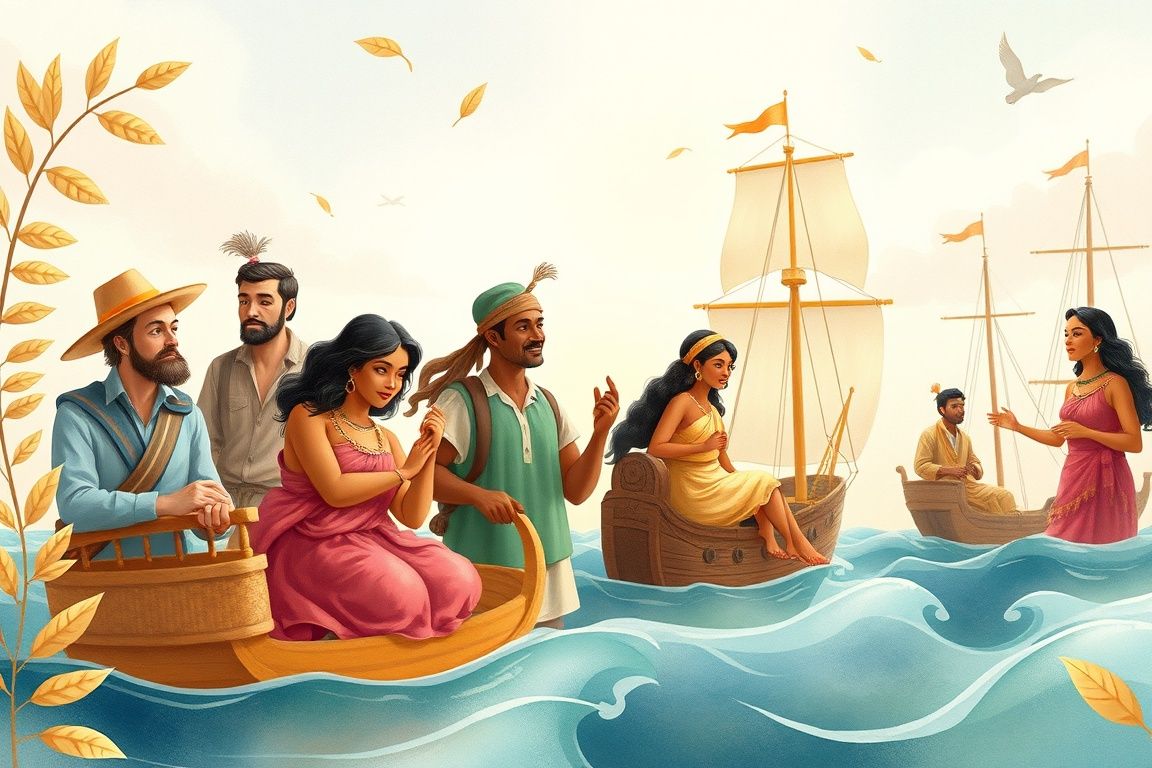European Voyages and Their Global Impact

This course examines the motives, routes, and outcomes of European exploration from the 15th to 17th centuries. Participants will learn about key figures such as Columbus and Magellan, and how these expeditions reshaped global trade and cultural exchanges.
Why It’s Worth It
Understand the comprehensive motives behind historical exploration and its implications for current global dynamics.
Gain insights into the technological advancements that facilitated groundbreaking voyages, enhancing your understanding of maritime history.
Explore the human stories behind exploration, from celebrated figures to lesser-known contributors, enriching your perspective on global heritage.
Your Learning Roadmap
Foundations of European Exploration
In this module, participants will explore the socio-economic and political conditions in Europe that set the stage for exploration. The lessons cover historical context, economic motivations, and societal changes, building a foundational understanding for the rest of the course. Historical Context Economic and Political Factors Societal Changes
Motivations Behind the Voyages
This module examines the varied driving forces behind the voyages. Focusing on religious, economic, and personal ambitions, students will identify why Europeans ventured into unknown waters. The lessons build on the historical context to analyze what truly motivated these journeys. Religious Influences Economic Ambitions Personal Aspirations and Heroism
Routes and Navigational Advances
Participants will investigate how explorers mapped unknown territories and advanced seafaring technology. The lessons highlight early navigation tools, charting techniques, and innovations in shipbuilding that facilitated long-distance voyages, connecting technical progress with exploration success. Early Navigation Tools Charting Ocean Routes Innovations in Shipbuilding
Key Figures of Exploration
This module focuses on the biographies and achievements of iconic figures such as Christopher Columbus and Ferdinand Magellan, among others. The lessons review their backgrounds, leadership qualities, and the profound impact their voyages had on world history. Christopher Columbus Ferdinand Magellan Other Unsung Explorers
Global Impact: Trade and Cultural Exchanges
In this module, students will explore how the establishment of new trade routes and the subsequent exchange of goods, ideas, and cultural practices between continents transformed global economies and societies. The content bridges historical events with their long-lasting economic and cultural consequences. Transforming Global Trade Cultural Encounters Legacy of the Columbian Exchange
Long-term Consequences and Modern Perspectives
This module scrutinizes the long term environmental, social, and political impacts of historical voyages. It discusses consequences for indigenous peoples, shifts in global power, and evolving interpretations of these events in modern times, encouraging a nuanced view of historical legacies. Environmental and Social Impact Political and Economic Repercussions Modern Interpretations
What Users Are Saying
All You Need to Know
Join the Journey of Discovery
Real-time interaction with an AI tutor for instant feedback.
Self-paced learning to fit your schedule and preferences.
Engagement through interactive lessons and immediate Q&A.
Comprehensive coverage of the socio-economic context of explorations.
Focus on the legacies of explorers in modern discourse.
In-depth analysis of cultural exchanges and their consequences.
